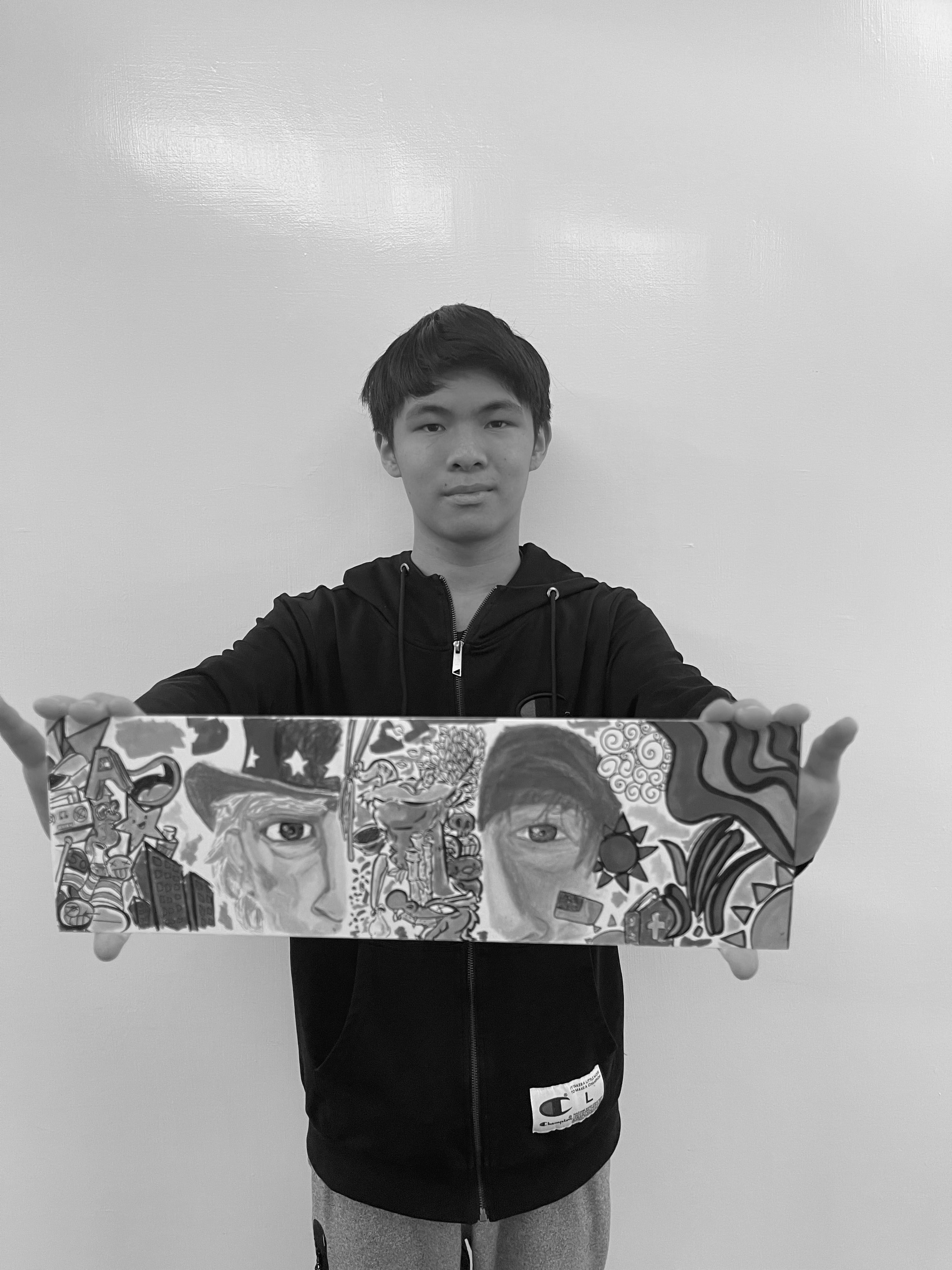We Are America
THE “American”
By Nick

Taipei American School, Taipei, Taiwan
I am an American, or I would like to think I am. Growing up with a dad raised in a Western culture and a mom raised in an Asian culture, I legally am both American and Taiwanese. However, being raised in Asia my entire life, I never knew how different American culture was from the type of culture I was accustomed to until I went to a summer camp in the US.
The camp, as expected, did not have many Asian kids. In fact, I was the only one as far as I could tell. In Cabin 7, the cabin I was assigned to, everyone kept asking me to speak Mandarin and translate some phrases they were curious about, but not what video games I liked or what I like to do in my spare time. I felt like an outsider. I’m no different than you are, I thought, I’m an American too. They did not harass me, at least not in any violent way I have heard stories about, but I realized after a couple of days in the camp, they simply did not understand that being from a different country does not mean I should be treated differently. But I still wondered, what made me so different from them? Am I even American myself?
Throughout the days in camp, I started to adjust the way I speak, such as talking faster and started using slang more often. I wanted to “fit in” with the other kids, but it seemed like no matter how much I tried to change myself, nothing really changed. To them, I was still this “foreign” kid. Anger started boiling within me. It’s not fair, I thought, I was tired of being treated like an outcast. I ran back to my assigned cabin and hid in the bottom bunk bed as if it was reminding me that I am below them, and that I’ll never be like them. It’s not fair. It’s not fair. It’s not fair! The once bright billowing yellow sheets turned to a darker greenish color, dampened by a foreigner’s tears. I just wanted to go back home.
I have heard stories from my dad of what it was like for him, as an Asian American to grow up in the US, how rough it was being openly discriminated against, as well as violence because of his race. I am very thankful I never had to go through anything like that, but even small things, such as people staring or talking to me out of interest in my culture and not me as a person, can be upsetting. I have had people come up to me and ask where I am from and never ask ME my name. Ironically, whenever I have a conversation with another Asian, we almost never ask each other where we come from, or anything to do with our culture. Most people do not understand how hurtful words are, even if the intention is out of curiosity, it can still affect the person they are asking.
© Nick. All rights reserved. If you are interested in quoting this story, contact the national team and we can put you in touch with the author’s teacher.